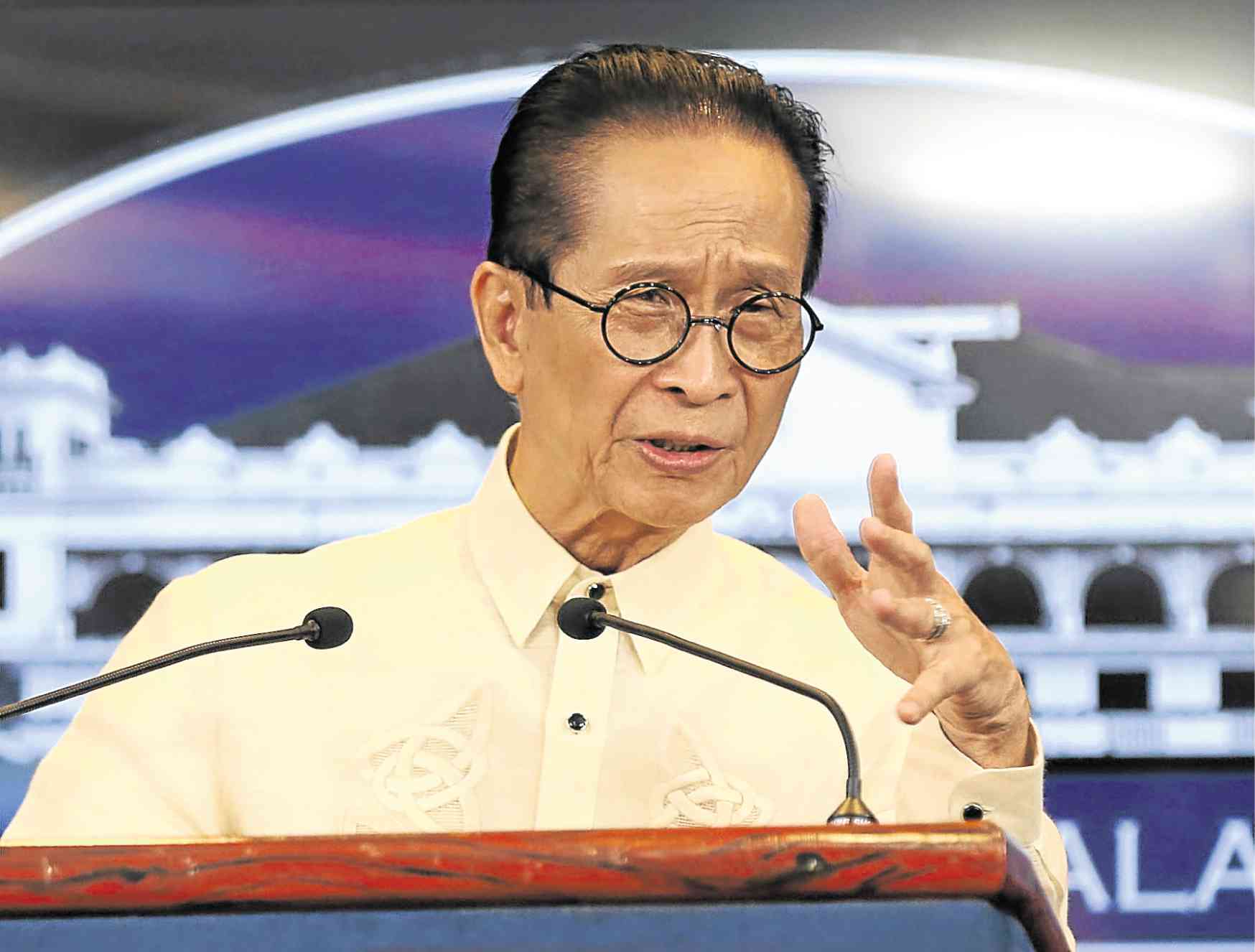Panelo: Stop whining about fare hikes

Presidential spokesperson Salvador Panelo
Just grin and bear it.
Malacañang urged commuters to “take the brunt” of the increase in minimum jeepney and bus fares that the Land Transportation Franchising and Regulatory Board (LTFRB) approved on Thursday.
Presidential spokesperson Salvador Panelo pointed out that the jeepney fare was “only P10” and that the public should just put up with it.
“The message of all this, ‘this is just temporary.’ So hopefully when everything settles down, we’ll go back to normal,” Panelo said at a press briefing on Thursday.
Panelo’s remarks came after the LTFRB approved the increase in basic jeepney fare from P9 to P10 in Metro Manila, Central Luzon and Calabarzon, and minimum bus fare from P10 to P11 in Metro Manila.
Article continues after this advertisementProvincial buses were granted a 15-centavo increase for every succeeding kilometer after the first 5 km.
Article continues after this advertisementThe fares will be adjusted in November.
Neda ignored
In approving the petitions for fare increases for jeepneys and buses, the LTFRB ignored several recommendations from the state economic planning agency to avoid further inflation.
The increases come amid simmering public outrage over soaring prices of basic commodities and services.
LTFRB Chair Martin Delgra said on Thursday that the adjustments were meant to balance the interests of the riding public and of operators and drivers of public utility vehicles (PUVs).
But in a letter to the LTFRB dated Oct. 2, the National Economic and Development Authority (Neda) said the board must push for alternative programs to bring down the cost of fuel rather than pass the burden to commuters.
The letter was prompted by the LTFRB request for Neda to study the fare matrices proposed by the petitioners and to recommend ways to cushion the inflationary effects of any increase.
Neda said any fare increase “will certainly positively contribute or raise the [country’s] current inflation rate,” which stood at 6.7 percent in September.
Subsidy, discount
It recommended instead that the board rush the implementation of its Pantawid Pasada program, which provides P5,000 fuel subsidy for around 180,000 jeepney operators, and to partner with oil companies to give fuel discounts to PUV drivers.
If an increase was inevitable, Neda suggested a 50-centavo provisional increase for jeepneys (P9 to P9.50), and a P1 increase for buses (P10 to P11), without an extra amount for every succeeding kilometer after the first 5 km.
But on Thursday, the LTFRB permanently approved the P1 provisional increase it granted to jeepneys in July, as well as an additional P1.
It also approved a P1 provisional fare increase for buses in Metro Manila (both airconditioned and ordinary), while provincial buses were granted a 15-centavo increase for every succeeding km after the first 5 km.
The gulf between Neda’s recommendations and the LTFRB’s final decision was just as manifest in the three-member board, whose recent policies have been dogged by infighting.
Dissent
Aileen Lizada, the sole dissenter on the board, called out Delgra and board member Ronaldo Corpus for “rushing to execute” the adjustments despite Neda’s letter.
“I am not against any fare hike increases, but we should act judiciously in the interest of those in the lower [income] brackets, who would be affected the most by these hikes,” Lizada said at a press conference.
These could be stayed if someone filed a motion for reconsideration within the next 15 days, Lizada said.
Delgra, who held a separate press conference later, maintained that the Neda report was not the deciding factor in the LTFRB decision to raise fares.
“Considering the circumstances, this was the best we can do,” he said.
Josua Mata, secretary general of the labor group Sentro, said the impending fare increase further justified the need for the wage board to grant workers an increase bigger than the P20 Labor Secretary Silvestre Bello III had earlier estimated. —WITH A REPORT FROM JOVIC YEE